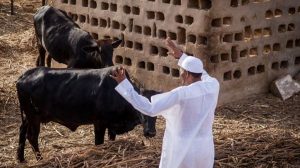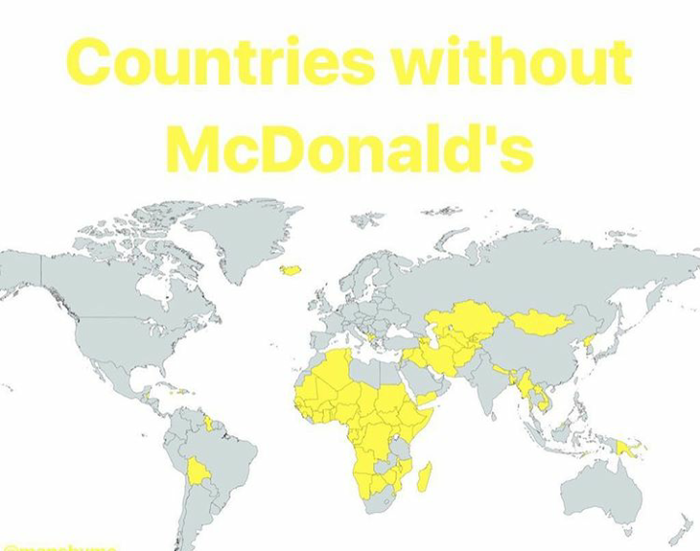The debate will remain inconclusive whether a global eatery such as McDonald is a signifier of prosperity or otherwise. If nutritionists have their way, McDonald would carry a warning on everything it sells because of the threat of non-communicable diseases such as obesity their stuff are linked to. But that is not the issue at stake here. Rather, what is at stake here for now is what a series of maps the British newspaper, The Telegraph has published has revealed, (https://www.telegraph.co.uk/travel/maps-and-graphics/brilliant-maps/)
Different readers will find different angles the most interesting. What is likely to interest most people from both sides of the global power equation is the absence of McDonald across Africa. And then the debate that should follow that as raised above. In other words, is that a developmental plus or minus?

Cattles on the move in Nigeria

An eatery whose absence has become a commentary on agricultural practice in Nigeria, for example
Ordinarily, it is an easy question to answer. But a complicated subject too if linked to this story that a Nigerian business man has told before. The story goes like this:
The investment minded businessman had approached the eatery a few years back to ask for the franchise to open a Nigerian outlet. The request was not granted because McDonald said Nigeria has no beef. With all the cattle in Nigeria? Yes! But why? As far as the eatery is concerned, the cattle in Nigeria are what they call thread, i.e. they have no quality meat value after being made to trek from Sokoto to Port Harcourt. Compared to the beef they get from Australia or Namibia, the ones in Nigeria is an apology. And they would not approve of a Nigerian outlet.
Why is Namibian beef good for business but not Nigerian beef? Well, they argue that there is a ranching culture in Namibia, the sort they have not seen anywhere in Nigeria. In other words, they do not consider the cows in Nigeria as cows for the simple reason that there is no meat there anymore after being moved on foot up and down a vast country such as Nigeria. What this means is that there is no serious Nigerian business man or woman today who can say that he or she can obtain the franchise to open a MacDonald eatery anywhere in the country today.

President Buhari appears to know how to breed robust cows on his farm but not transferred that expertise to larger Nigeria yet

Agriculturally wealthy but …
In that case, the issue is not yet whether Nigeria as a country should encourage or discourage citizens from eating fast food but that due to a peculiar condition of underdevelopment, the country is not even qualified to host any of the competitive global eateries. As Intervention asked before in June 2019, (https://intervention.ng/16606/), how did it happen that The Presidency, the Federal Ministry for Agriculture, the Ministry of Foreign Affairs and the numerous MDAs have not by design or accident anticipated and worked out a more modern answer to the contradictions in ranching? What is so impossible in that?
This is what some critics would call the leadership tragedy when, instead of a serious push into rapid modernization of animal husbandry, the Buhari regime has entangled the country in the unproductive debate and rancor over what has become interpreted as a hidden ethnic agenda. It is unlikely that a genuine programme of ranching within a comprehensive strategy of rapid modernization of agriculture would have suffered such interpretation.
Instead of such, the president has gone into something that is not a solution to the crisis in any way. The point is that there has been a clash between cattle rearers moving with herds from the North to the South and the whole idea of modernity. It is a big shame that no one, especially in the past few decades, visualized a clash between that movement of herds and the features that signify modernity such as skyscrapers, giant factories, macadamized thoroughfares, huge farms, expansive malls, huge demographic leap and the megacity tradition. Failing that visualization also means that no one has reflected on the fact that no global eatery such as McDonald would grant its outlet in Nigeria today on the ground that Nigeria has no beef.




























